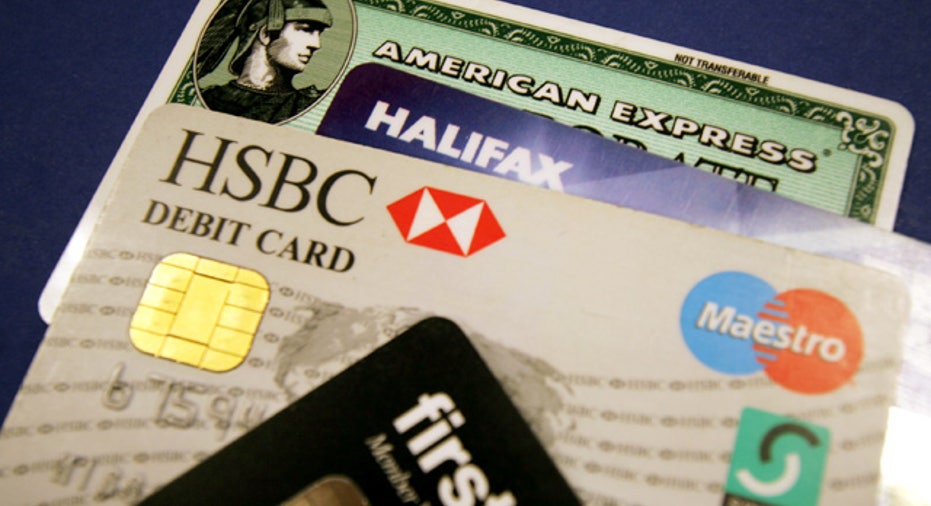8 People You Trust With Your Credit Card, But Shouldn't

It's amazing how often we blindly hand over our credit cards and numbers to so many people and businesses. Why? We trust them! The problem is, however, that sometimes we'd be better off holding back and taking a more discretionary approach. Certain individuals and companies should be off limits. To keep safeguard your credit, avoid giving the following folks unlimited access to your account.
1. Your darling child. Whether you have a PC, smart phone or iPad,chances are high that your kid has become quite the gaming pro. She begs for your password and soon your bill swells. It happens, and the damage can be extreme.In January 2011, a 7-year old in British Columbia was on an iPod and found an app called Touch Pets - Dogs 2. An hour's worth of play ran up $852, which was charged to the credit card her parents had on file with iTunes. "Trust can't come without education and maturity," says Jan Ruskin, spokeswoman for Creative Wealth International, a financial literacy product company. And clearly a child can't be expected to read and understand fine print.
2. Callers investigating a credit card scam. The man on the phone sounds both professional and deadly serious. He's with the police or credit card company, and he says that your account has been compromised. To confirm your identity, he needs you to read off your card's numbers. The catch: He's the thief. "No responsible agency will work this way," says Los Angeles-based security expert Chris McGoey. It's easy to fall for this scam because very often the caller knows a few facts about you. "They'll get a hold of people from a list -- religious, political,etc. The story sounds plausible," says McGoey.To ensure all is well, though, hang up and call the number on the back of your card.
3. Loved ones. You'd think you could rely on your best bud to never do you wrong, right? Well, not necessarily. Sometimes it's those closest to us who abscond with our credit information. A 2010 Identity Fraud Survey Report found at least 13 percent of all identity theft is perpetrated by friends, neighbors and other close acquaintances. Lend a pal your card or leave statements in plain view and you could be exposing yourself to trouble.
4. The hired help. It may save you time to hand over your Home Depot card to a contractor, or give your Visa to the nanny so they can buy supplies, but that's giving strangers way too much access. They might be the most upstanding people in the world, but you should still order your own stuff. The only people who should ever charge on your card besides you are other co-signers and authorized users.
5. Virus protection heros. Get online and see a warning message that your computer has a virus needing immediate attention? Use extreme caution when purchasing new protection software. "Don't trust anyone who tries to scare you into downloading software to fix your PC that's supposed to have a virus,"warns Robert Siciliano McAfee, a consultant and identity theft expert. "This is scareware, and it will mess up your operating system, and your card will be charged more than once."
6. The disappearing waiter. Anytime your plastic is swept away by another person, you have reason for pause. Unfortunately, some restaurant staff may be especially dangerous. "Many skimming networks operate using wait staff,"warns Steve Rhode of GetOutOfDebt.org. "They will pay $50 or more for credit card information that can be swiped off your card using a small electronic device that reads the magnetic strip on the card. Skimming only takes two seconds." While you can't always control where they take the card, it's important to check your receipts and statements immediately.
7. The"helpful" debt collector. If you owe money to a collection agency, you might be asked to enter into a payment plan or settlement agreement using your credit card. Don't do it, says Sonya Smith Valentine, attorney and author of "How to Have a Love Affair with Your Credit Report." "If you are working out a deal on past due debt with a debt collector, send a money order," she suggests. "Some debt collectors will charge your card for the whole amount that you owe, not just the amount they agreed to settle the debt for."
8. You. According to Carrie Coghill, director of consumer education for FreeScore.com,the person you might want to be most wary of may be reflected in the mirror."Even the smartest people do the dumbest things," Coghill says. She cites examples of those who consolidate debts on low interest rate cards, but don't pay attention to the special rate timeframe and get hit with super high APRs,and millionaires who overextend themselves because they must have the latest things. So look inward, cardholder: If you can't trust yourself to stay out of debt, purge your wallet of plastic.
While casting suspicious glares at everyone is unnecessary, being careful can prevent common credit problems. Monitor your financial affairs too. "The bottom line is the best deterrent against credit card fraud and abuse is for you to monitor your monthly statements and check your consolidated credit report twice a year," says Rhode.
More from CreditCards.com:



















